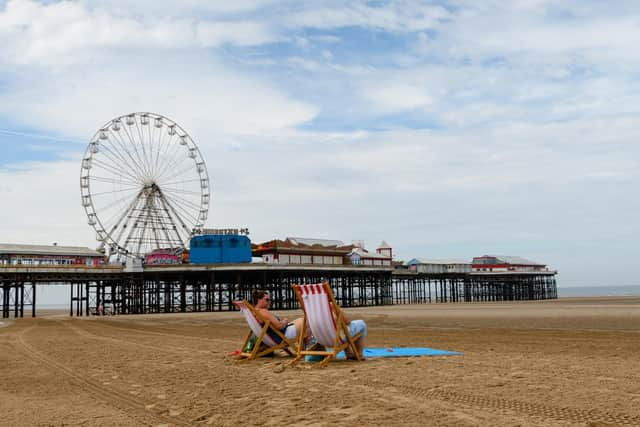Scientists resume testing of bathing waters off Lancashire coast
and live on Freeview channel 276
Environment Agency staff will be monitoring 29 bathing water sites across the North West until September 30 this year.
Designated bathing sites will be tested regularly to check water quality and water users can check the water quality forecast on the Swimfo: Find a Bathing Water website.
Advertisement
Hide AdAdvertisement
Hide AdAnnual sampling to test the Fylde coast’s bathing water was suspended due to the pandemic, but now with hopes pinned on home tourism for a post-Covid economic recovery, the scientists are back on duty from this week.


In the last series of results, all 29 designated bathing waters in the North West met the revised water quality standards that were introduced in 2015.
Bispham and Formby, were classed as “excellent”, Southport, St Annes, Blackpool South, Blackpool Central, Cleveleys, Fleetwood, Morecambe South and Morecambe North were rated “good”, while St Annes North and Blackpool North were said to be “sufficient”.
Environment Agency Chair Emma Howard Boyd said: “Before the pandemic, coastal tourism in England generated £13.7bn, supported 10,000 tourism related jobs with 15 to 20 percent of employment in coastal locations linked to tourism, in some places over 50 percent.


"Public confidence in bathing water quality is key to the tourism industry as well as people’s health and wellbeing. We monitor sites and provide pollution risk forecasting at over 170 sites throughout the bathing water season so people understand the local situation.
“Targeted regulation and investment over several decades on the coast have driven significant improvements to bathing waters, but there is work to do inland. Water companies, industry and farmers need to meet regulatory requirements or face legal action, and there are small steps we can all take to help. For example by never flushing away wet wipes or plastic products like nappies so they don’t end up in the water.”
She said designation did not guarantee clean water for swimming. Bringing rivers up to bathing water standards was a challenge and placed greater responsibility on farmers, water companies and communities to help remove the pollution that is harmful to swimmers including small steps such as not pouring fats and oils down the sink or flushing wet wipes and other plastic products down the loo can help to protect water quality.
Keith Ashcroft, area director for Cumbria and Lancashire at the Environment Agency said: “It’s great to see the majority of bathing waters in the North West have excellent water quality, which is fantastic for the tourism industry as communities get back on their feet after the pandemic.
“Recent improvements in the region’s water quality have been driven by effective joint working with United Utilities, local authorities, communities, wildlife trusts, landowners and farmers.
Advertisement
Hide AdAdvertisement
Hide Ad“We will continue to work closely with the Turning Tides Partnership, the Love my Beach campaign and our committed community groups to ensure homeowners are aware that individual actions count – flushing wet wipes, cotton buds and sanitary products down the loo can result in blockages and overflow, which have a damaging impact on water quality.”
